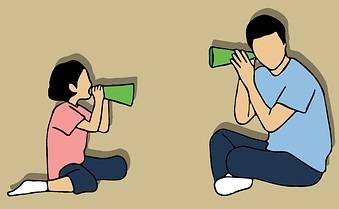
Following on from the first article about what a difference a Dad makes to his children …
Dads and “Hangout Time”
Another important thing is the concept of hangout time.
Right from birth children experience their fathers differently than their mothers. Similarly fathers treat their children differently than mothers. Mothers are often automatically “on the side” of the child, wanting to reassure them when things don’t go well. Whereas fathers are often less accepting of their child doing wrong or being lazy, and are more likely to be confrontational.
These parenting styles, probably developed over thousands of years, are different but complementary.
This makes having “hangout time” between a father and his children vital because it is when they are just hanging out that a child is most likely to pluck up the courage to share something they are ashamed of to their father. Hangout time is just doing something together, not necessarily talking at all. It is during that time the child is most likely to broach a difficult subject. It might be related to a bad report at school, or not knowing how to deal with a bully, or failing to get into the school football team.
Daughters and Hangout Time – Caution!!
Daughters who have a lot of hangout time with their dads become significantly more centred. But there are some things fathers need to avoid when having hangout time with a daughter.
It is great when Dads build up a girl’s confidence by telling her that she is pretty but don’t let it start or end there. Unlike when we were kids she is growing up in an Instagram-ready culture when she will be expected to have a smartphone by the age of 11 and uploading sexy photos long before the age of puberty.

Governments and schools are trying to catch up to these problems but they are late to the party and the level of depression among young girls who value themselves solely by how they look is epidemic. It is often catastrophic when a girl is brought up to believe that the most valuable thing about her, the most accurate measurement of her self-worth, is her looks.
Instead look to bolster her self esteem by picking up on other praiseworthy aspects. Is she clever? Is she sporty? Is she funny? Is she courageous? Is she kind to younger siblings? Does she have a natural way with animals?
Look for aspects of her personality which you can also build up so that when the inevitable baptism of looks-judgemental fire hits her young life she is armed with sound foundations about her worth as a human being.

When you hang out with a daughter don’t just spend time doing girly things as she gets older. I know – lots of little girls love nothing more than experimenting with makeup and hairstyles on their Dad (enjoy it!!) but also take her out to do stuff she might not consider girly. Try taking her fishing or camping. Show her how to erect a tent. What about taking her go-cart racing? Or just on a nature walk, naming the types of trees. Could you afford doing a riding lesson together? The more you can get her interested in nature and the outside world the more able she will be to resist the pressures she will encounter online as she gets older.
Wisdom When Your Child Opens Up To You
Fathers will work thru a problem and solution rather than remove the child from the challenge or problem.
You might think that calling someone out on their failure is harsh and judgemental but it isn’t if you are about helping them reach their potential. If a child tells you they messed up, and you both know it is because of laziness, if you just accept it they won’t do better next time.

But if as a father you highlight their potential and discuss a way forward with them you are encouraging them by showing you have faith in who they could be. The child will open up to a dad who will talk the problem through. A wise dad (or mum) wont give a solution straight away but will help develop their child’s own abilities to analyse a better way forward by asking him or her questions such as “What is your best guess as to what happened ?”…”What do you think could be a better approach?”
Often the child already has a sense of what the problem is and how to tackle it. If she or he feels that you as their father is not going to give up on them but will help work through the problem together it shows the child that the father respects him enough to overcome obstacles and to grow. Instead of saying “that’s not a problem, you are perfect” the father says “yes, it’s a problem, but you can overcome it”.
Then something very profound happens. The child starts to develop respect for his own judgement.









